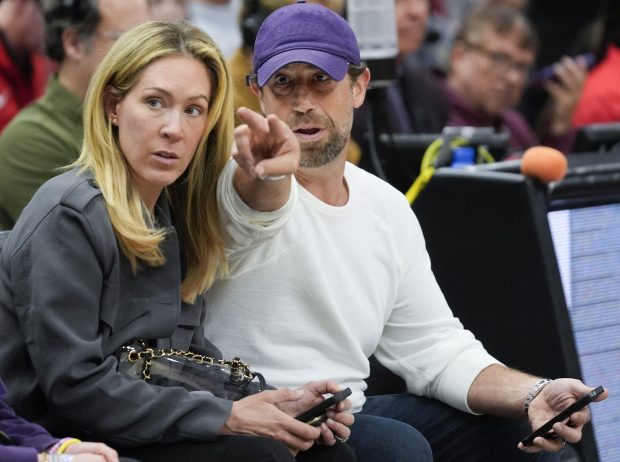The reputed leader of a suburban street gang member convicted of trying to funnel cash to the Islamic State terror group was sentenced to 18 years in prison, far less than the 30 years the government sought.
Jason Brown, 42, of Lombard, pleaded guilty in December to attempting to provide material support to the Islamic State, also known as ISIS, distributing fentanyl and possessing a firearm in furtherance of a drug trafficking crime. On Wednesday, U.S. District Judge Mary M. Rowland sentenced Brown to 18 years in prison.
In his plea deal, Brown admitted to making three $500 cash payments in 2019 to a person who he believed would wire the money to an ISIS fighter in Syria. The receiver turned out to be an FBI informant, and the ISIS fighter was a law enforcement officer, authorities said.
Brown, who converted to Islam while serving time in a Georgia prison for a gun-related conviction, formed his Bellwood-based AHK City gang, composed of members from several other area street gangs, whom he actively worked to convert and radicalize, encouraging them to support the terrorist organization, according to federal prosecutors.
In a 46-page sentencing memo, prosecutors pointed to Brown’s extensive criminal history — more than two dozen criminal convictions, including a 2005 conviction for second-degree murder in Cook County — and his criminal ties, including distributing marijuana and fentanyl, in asking Rowland to give a sentence of 30 years.
In addition to running the gang, authorities said Brown operated “a sophisticated narcotics operation transporting narcotics from California to stash house locations in Illinois” and possessed loaded firearms that he was not legally permitted to own.
In one incident, authorities intercepted a mail parcel containing just over $100,000 cash. They said Brown had tried to mail it to one of these stash houses.
“From supporting terrorism to trafficking deadly narcotics to stockpiling firearms, Brown’s criminal behavior has no bounds,” prosecutors said in a sentencing memo. “The wide scope of Brown’s offense conduct is extremely serious and warrants a significant term of imprisonment.”
Brown’s attorneys had sought the mandatory minimum sentence of 10 years, asking the court to disregard the incendiary allegations. They argued that their client was vilified by media coverage they say painted him as a “boogey-man” and that no members of his gang were ever recruited into a terrorist.
“But these doomsday fears of gang members doing anything on behalf of ISIS never came to fruition,” Brown’s attorneys wrote in a filing. “No material support charges were brought against any other individual, much less the ‘AHK City’ gang. Moreover, as the facts of this case rose to the surface, the promised link between the narcotics and terrorism charges failed to materialize.”




